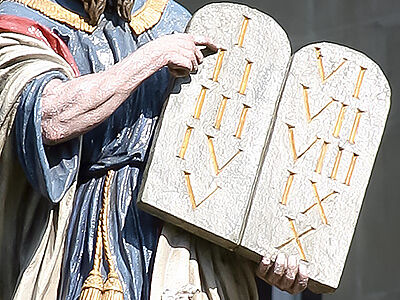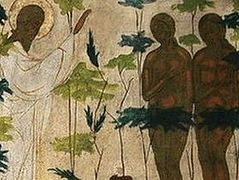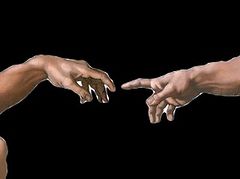An analysis of Determinism. A false and true understanding of Indeterminism. The influence upon us of motives; and freedom of choice. Self-consciousness of freedom, and the fact of repentance.
We already know that a person is responsible for his actions only while he is free when performing them. Does he have such a spiritual freedom, the freedom of will which is assumed here? Lately, a theory called Determinism has spread widely. The followers of this teaching, Determinists, do not acknowledge that man has a free will. They assert that in: each separate action, a person is motivated to act only by external causes. According to their teaching; a person’s actions are always influenced by motivations and impulses not dependent upon him and ordinarily submits to the strongest of these motivations. These scholars say that “it only seems to us that we are acting freely, but this is self-delusion.” The famous sixteenth century philosopher, Spinoza, defended this view. Illustrating his position, he spoke about a stone, which, having been thrown, would, if it could think and speak, say that it was flying and falling where it chose. In reality, it flew only because someone had thrown it and fell because of the force of gravity.
We shall return to this illustration later. At present, let us note the following. Teaching opposed to Determinism is Indeterminism. This concept is accepted by Christianity. But we should keep in mind that extreme indeterminists exist, whose teaching is one-sided and false.
They say that a person’s freedom is his absolute power to act as he wishes. In this way, according to their ideas, individual freedom is practiced at a person’s arbitrary discretion, acting completely by his own desires or whims. With this false decoy of “freedom”, socialists and communists enticed and seized the unhappy and deceived Russian people (holy Apostle Peter speaks of such “freedom” in I Peter II, 15-16; II Peter II, 19.). Of course, this is hot freedom. This is the abuse of freedom, its perversion. A person does not have absolute, unconditional freedom. Only Almighty God possesses such high, creative freedom.
In contrast to this false indeterminism, genuine indeterminism’s ideas are different. It teaches that a person is undoubtedly influenced by external motivations and impulses of the most varied sort. In such a manner, for example, he is influenced by the surrounding milieu, conditions of life, the political setting, his educational level, his cultural development, etc. all this is reflected in the traits of his moral character. Indeterminists agree with determinists that various external motivations and influences act, often very strongly upon, an individual. But further there is a radical difference between the two concepts. While Determinists say that a person behaves in a particular manner only through the influence of the strongest motivation, not having any freedom, the Indeterminists assert that he is free to choose any of these motivations (towards good or evil). This motive may not be the strongest, besides, a person may even prefer an action which to other people seems to be clearly disadvantageous. An illustration of this is the podvig of martyrs, who seemed to be consciously, mindlessly destroying themselves to the pagan torturers. In such a manner, from the point of view of Indeterminists, individual freedom is not an unconditional-creative freedom, but a freedom of choice, the freedom of our will to decide whether to act in a particular way or not.
Christianity accepts precisely this kind of concept of human freedom, in accord with indeterminism. Applying this concept to morality, to the question of the struggle between good and evil, between virtue and sin, Christianity says that individual freedom is the freedom to choose between good and evil. According to scholarly theological definition, “freedom of will is our ability, independent, of anyone and anything ‘towards self-determination in good and evil”.
Now, we can appraise Spinoza’s illustration of the falling stone. We have been convinced that a person has free will in the sense of choosing to act in a specific, way. Spinoza considers the flight of the stone to be analogous to human behavior. But this can be possible only if the stone has the freedom to choose whether to fly or not to fly, to fall or not to fall. But a stone obviously does not possess such freedom of choice and so this illustration is not at all convincing.
The bankruptcy of Determinism, rejecting free will, is also evident in the following. First, not one Determinist actualizes his own teachings in his practical life. It is clear why this is so. If one looks upon life from the Determinist point of view, then no one should be punished, neither a lazy student for his laziness, nor a thief for his theft, nor a murderer, and so forth, since they did not act freely, but are only slaves, mindlessly will-lessly fulfilling the dictates of their motivations, influenced by them externally. An absurd, but completely logical conclusion which may be drawn from Determinism. Secondly, the proof of free will is the spiritual experience called repentance. a fact known to everyone through their own personal experience. What is this feeling of repentance based upon? Apparently, the repenting person returns in his mind to the moment of his wrong action and weeps over his sin, clearly realizing that he could have behaved differently, could have not done this evil, but good instead. Apparently, this repentance could not be possible, if a person did not possess free will, if he were a slave of external influences, deprived of a will. In such a ease, he would not be held responsible for his actions.
We, Christians, recognize an individual as morally free, governing his own will, and behavior. This kind of freedom is the greatest gift to Man from God, Who does hot seek mechanical obedience from man, but a free, filial obedience of love. Our Lord Himself confirmed this freedom, “if any man will come after me, let him deny himself, and take up his cross, and fellow me.” (Math. 16:24). “See, I have set. before thee this day life and good, and death and evil…therefore choose life, that both thou and thy seed may live” (Deuteronomy 30:15, 19).








